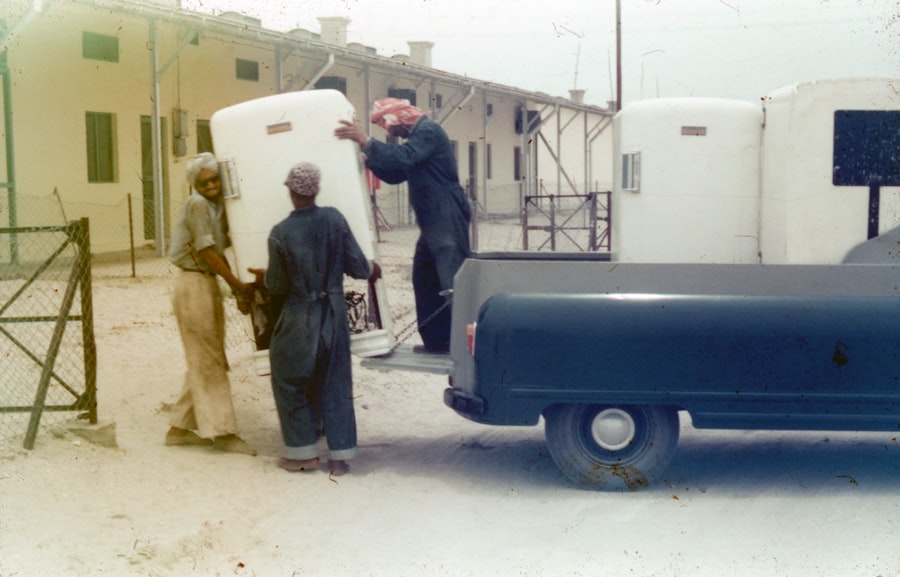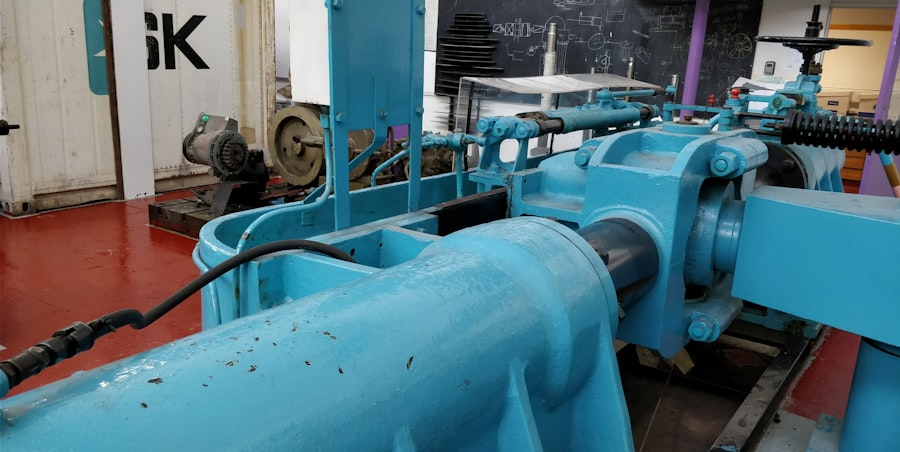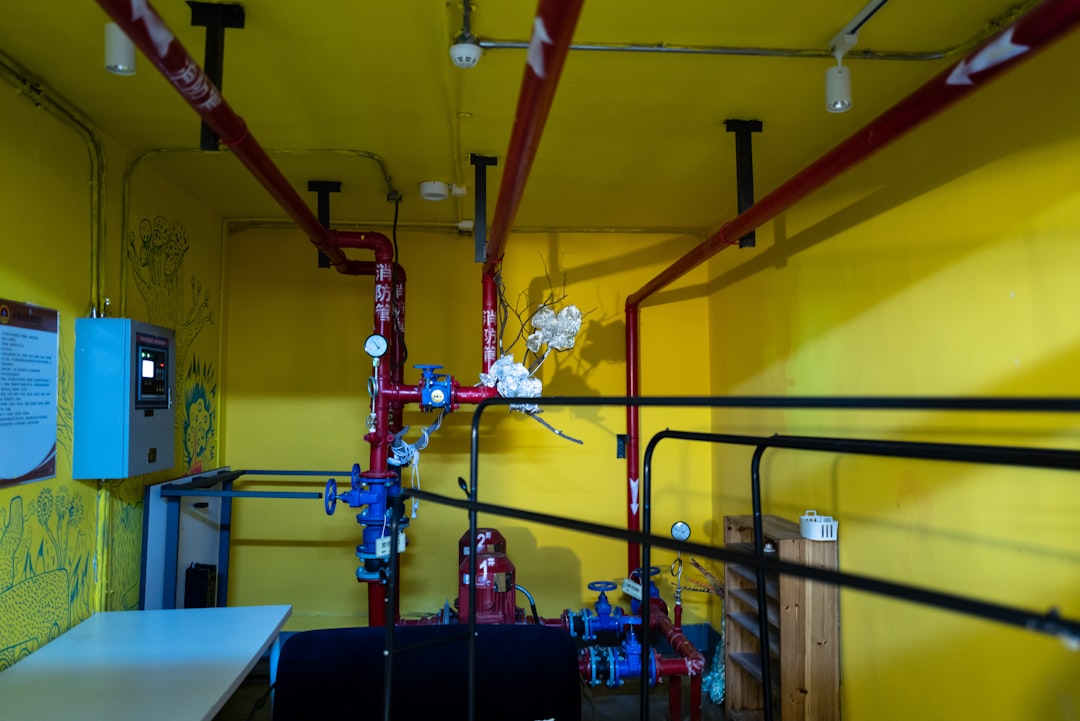Water bottling plant operations encompass a complex array of processes designed to transform raw water into a packaged product ready for consumer distribution. These facilities are responsible for sourcing, treating, bottling, and distributing water, ensuring that it meets stringent health and safety standards. The operations typically involve several stages, including water extraction, purification, bottling, labeling, and packaging.
Each stage requires careful management to maintain quality and efficiency, as well as to meet the growing demand for bottled water in various markets. The significance of water bottling plants has surged in recent years, driven by increasing consumer preferences for convenient hydration options. As bottled water becomes a staple in many households and businesses, the operational dynamics of these plants have evolved.
They must not only focus on production but also on sustainability, quality assurance, and technological advancements. Understanding the intricacies of water bottling plant operations is essential for stakeholders aiming to optimize performance and meet consumer expectations.
Key Takeaways
- Efficiency is crucial for optimizing water bottling plant operations and reducing costs.
- Lean manufacturing principles help streamline processes and minimize waste in bottling plants.
- Advanced technology and automation enhance productivity and ensure consistent quality.
- Environmental sustainability practices are essential for reducing the ecological impact of bottling operations.
- Continuous staff training and effective supply chain management contribute to overall operational success.
Importance of Efficiency in Water Bottling Plants
Efficiency in water bottling plants is paramount for several reasons. First and foremost, it directly impacts the bottom line. High operational efficiency reduces waste, minimizes production costs, and maximizes output.
In an industry where profit margins can be thin, particularly due to fluctuating raw material costs and competitive pricing, efficient operations can be the difference between success and failure. By streamlining processes and eliminating bottlenecks, plants can produce more bottles in less time, ultimately leading to increased revenue.
Water bottling plants that operate efficiently are better positioned to reduce their environmental footprint. This includes minimizing water usage during the bottling process, reducing energy consumption, and decreasing waste generation. As consumers become more environmentally conscious, companies that prioritize efficiency are likely to enhance their brand reputation and customer loyalty.
Thus, the importance of efficiency extends beyond financial metrics; it encompasses social responsibility and environmental stewardship as well.
Key Factors for Efficient Water Bottling Plant Operations

Several key factors contribute to the efficient operation of water bottling plants. One of the most critical elements is the design of the facility itself. An optimally designed plant layout facilitates smooth workflow and minimizes unnecessary movement of materials and personnel.
This includes strategically placing equipment and workstations to enhance productivity and reduce transit times between different stages of production. Another vital factor is the selection of high-quality equipment and technology. Modern bottling plants rely on advanced machinery that can handle various tasks such as filtration, filling, capping, and labeling with precision and speed.
Investing in state-of-the-art technology not only boosts efficiency but also ensures consistent product quality. Additionally, regular maintenance of equipment is essential to prevent breakdowns that can disrupt operations and lead to costly downtime.
Implementing Lean Manufacturing Principles in Water Bottling Plants
| Lean Principle | Metric | Before Implementation | After Implementation | Improvement | Unit |
|---|---|---|---|---|---|
| Value Stream Mapping | Production Lead Time | 12 | 7 | 42% | Hours |
| 5S (Sort, Set in order, Shine, Standardize, Sustain) | Workplace Organization Score | 65 | 90 | 38% | Score (out of 100) |
| Just-In-Time (JIT) | Inventory Levels | 1500 | 800 | 47% | Units |
| Kaizen (Continuous Improvement) | Number of Improvement Suggestions | 5 | 25 | 400% | Suggestions per Month |
| Standardized Work | Process Variation | 15 | 5 | 67% | Minutes |
| Jidoka (Automation with a Human Touch) | Defect Rate | 3.5 | 1.2 | 66% | Defects per 1000 Bottles |
| Continuous Flow | Machine Downtime | 10 | 4 | 60% | Hours per Week |
Lean manufacturing principles have gained traction in various industries, including water bottling. These principles focus on maximizing value while minimizing waste, which aligns perfectly with the goals of water bottling operations. By adopting lean methodologies, plants can streamline processes, reduce lead times, and enhance overall productivity.
One effective approach within lean manufacturing is the implementation of continuous improvement practices. This involves regularly assessing processes to identify areas for enhancement. For instance, a water bottling plant might analyze its filling process to determine if there are any delays or inefficiencies that could be addressed.
By fostering a culture of continuous improvement among staff, plants can adapt to changing market demands and maintain a competitive edge.
Technology and Automation in Water Bottling Plant Operations
The integration of technology and automation has revolutionized water bottling plant operations. Automated systems can perform repetitive tasks with high precision and speed, significantly reducing labor costs and human error. For example, automated filling machines can accurately dispense the right amount of water into bottles without the risk of spillage or overfilling.
Furthermore, technology plays a crucial role in monitoring and controlling various aspects of production. Advanced sensors and data analytics tools allow plant managers to track performance metrics in real-time, enabling them to make informed decisions quickly. This level of oversight ensures that any deviations from standard operating procedures are promptly addressed, maintaining product quality and operational efficiency.
Quality Control and Assurance in Water Bottling Plants

Quality control and assurance are fundamental components of water bottling plant operations. Given that bottled water is a consumable product, it is imperative that it meets rigorous health and safety standards. Quality control measures typically involve multiple stages of testing throughout the production process, from source water testing to final product inspections.
Implementing a robust quality assurance program helps ensure that every bottle produced is safe for consumption. This may include regular microbiological testing, chemical analysis, and sensory evaluations to assess taste and clarity. Additionally, adherence to industry regulations and certifications further reinforces consumer confidence in the product’s safety and quality.
Environmental Sustainability in Water Bottling Plant Operations
As environmental concerns continue to rise globally, water bottling plants are increasingly focusing on sustainability initiatives. Sustainable practices not only help mitigate environmental impact but also resonate with consumers who prioritize eco-friendly products. One significant area of focus is water conservation; plants are exploring innovative methods to reduce water usage during production while maintaining quality standards.
Moreover, many water bottling companies are investing in sustainable packaging solutions. This includes using recyclable materials for bottles and reducing plastic waste through initiatives like bottle return programs or offering incentives for customers who recycle. By adopting environmentally friendly practices, water bottling plants can enhance their brand image while contributing positively to the planet.
Training and Development of Staff in Water Bottling Plants
The success of water bottling plant operations heavily relies on the skills and knowledge of its workforce. Therefore, investing in training and development programs for staff is crucial. Comprehensive training ensures that employees are well-versed in operational procedures, safety protocols, and quality control measures.
Moreover, ongoing professional development opportunities can foster a culture of continuous learning within the organization. This not only enhances employee satisfaction but also equips staff with the latest industry knowledge and skills necessary to adapt to evolving technologies and practices. A well-trained workforce is better positioned to identify inefficiencies and contribute to process improvements.
Supply Chain Management in Water Bottling Plant Operations
Effective supply chain management is vital for the smooth operation of water bottling plants. The supply chain encompasses everything from sourcing raw materials—such as water and packaging materials—to distribution logistics for delivering finished products to retailers or consumers. A well-coordinated supply chain ensures that production runs smoothly without interruptions due to material shortages or logistical challenges.
Collaboration with suppliers is essential for maintaining a reliable supply chain. Establishing strong relationships with vendors can lead to better pricing agreements, timely deliveries, and improved quality control over raw materials. Additionally, leveraging technology for inventory management can help plants optimize stock levels and reduce waste associated with overproduction or spoilage.
Best Practices for Maintenance and Upkeep in Water Bottling Plants
Regular maintenance and upkeep are critical for ensuring the longevity and efficiency of equipment in water bottling plants. Implementing a proactive maintenance schedule can prevent unexpected breakdowns that disrupt production schedules and incur costly repairs. This involves routine inspections, cleaning, lubrication, and replacement of worn parts as needed.
Moreover, adopting predictive maintenance strategies can further enhance operational efficiency. By utilizing data analytics tools to monitor equipment performance in real-time, plant managers can anticipate potential issues before they escalate into significant problems. This approach not only minimizes downtime but also extends the lifespan of machinery.
Case Studies of Successful Water Bottling Plant Operations
Examining case studies of successful water bottling plant operations provides valuable insights into best practices within the industry. For instance, one notable case involved a plant that implemented lean manufacturing principles alongside advanced automation technologies. By streamlining its production processes and investing in state-of-the-art filling machines, the facility was able to increase its output by 30% while reducing waste by 20%.
This success not only improved profitability but also enhanced product quality. Another compelling case study highlighted a company that prioritized sustainability by adopting eco-friendly packaging solutions and implementing water conservation measures throughout its operations. As a result of these initiatives, the company not only reduced its environmental impact but also attracted a loyal customer base that valued its commitment to sustainability.
In conclusion, the operations of water bottling plants are multifaceted endeavors that require careful consideration of various factors influencing efficiency, quality control, sustainability, staff training, supply chain management, maintenance practices, and technological advancements. By focusing on these areas, companies can optimize their operations while meeting consumer demands for safe and environmentally friendly bottled water products.
Water bottling plant operations are crucial for ensuring the efficient production and distribution of bottled water, which has become a staple in many households. For those interested in learning more about the intricacies of such operations, a related article can be found at Hey Did You Know This. This resource provides valuable insights into the processes involved in water bottling, including sourcing, purification, and packaging, which are essential for maintaining quality and safety standards in the industry.
WATCH THIS! The $400 Billion Water Lie: Why Bottled Water Is a Scam
FAQs
What is a water bottling plant?
A water bottling plant is a facility where water is processed, purified, and packaged into bottles for distribution and sale. The plant typically includes systems for filtration, sterilization, bottling, labeling, and packaging.
What types of water are bottled in a water bottling plant?
Water bottling plants commonly bottle various types of water, including purified water, spring water, mineral water, and sometimes flavored or enhanced water products.
What are the key steps involved in water bottling plant operations?
Key steps include water sourcing, filtration and purification, quality testing, bottling, capping, labeling, packaging, and storage. Each step ensures the water meets safety and quality standards.
How is water purified in a bottling plant?
Water purification methods may include filtration, reverse osmosis, ultraviolet (UV) treatment, ozonation, and sometimes distillation to remove contaminants and ensure water safety.
What types of bottles are used in water bottling plants?
Common bottle types include plastic bottles (usually PET), glass bottles, and sometimes biodegradable or recyclable materials, depending on the plant’s sustainability practices.
How is quality control maintained in water bottling plants?
Quality control involves regular testing of water samples for microbial contamination, chemical composition, and physical properties. Plants also follow Good Manufacturing Practices (GMP) and comply with regulatory standards.
What equipment is essential for water bottling plant operations?
Essential equipment includes water treatment systems, bottling machines, capping machines, labeling machines, conveyors, and packaging equipment.
What are the environmental considerations for water bottling plants?
Environmental considerations include water source sustainability, waste management, energy consumption, and the use of recyclable or biodegradable packaging materials to reduce environmental impact.
How is the water source selected for a bottling plant?
Water sources are selected based on quality, availability, and sustainability. Common sources include natural springs, wells, or municipal water supplies that meet regulatory standards.
What regulations govern water bottling plant operations?
Water bottling plants must comply with local and international regulations related to food safety, water quality, packaging, labeling, and environmental protection, such as those set by the FDA, EPA, or equivalent authorities.
